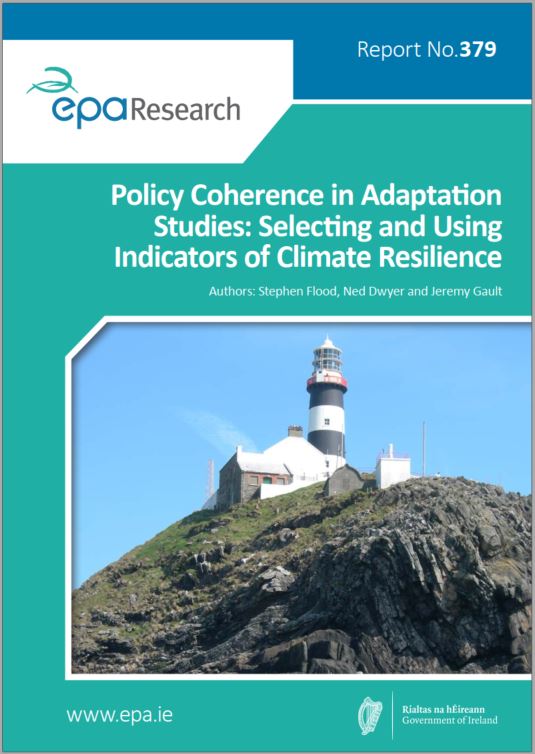
Authors: Stephen Flood, Ned Dwyer and Jeremy Gault, June 2021
Year: 2021
Adaptation action is now urgently needed to reduce the social, economic and environmental impacts of present and future climate change to ensure resilience to both extreme and slow-onset events under a changing climate. This project combines an analysis of international best practice and approaches to the development of climate adaptation indicators, co-designed by key stakeholder representatives from relevant state agencies and regional and national government, to identify a tailored suite of Ireland-relevant climate adaptation indicators. The co-design process identified a suite of 127 recommended indicators – 15 are climatological indicators, 23 are impact indicators, 32 are implementation indicators and 21 are outcome indicators. Ninety-one of these indicators were identified as priority.
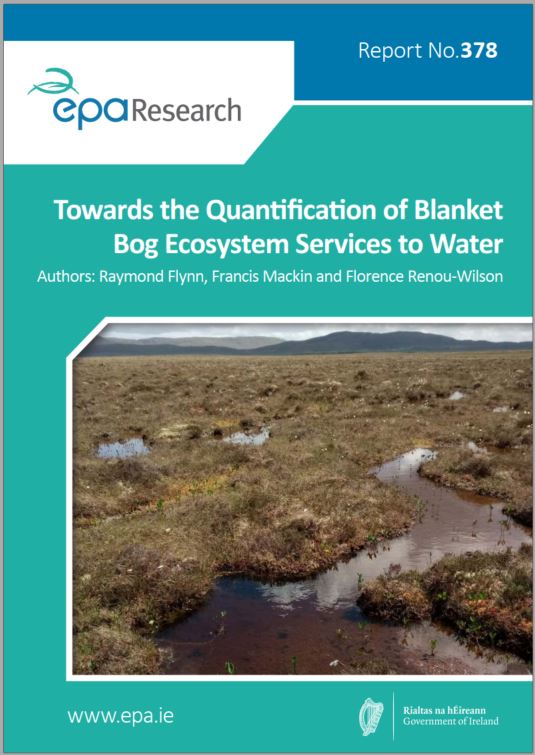
Authors: Raymond Flynn, Francis Mackin and Florence Renou-Wilson, June 2021
Year: 2021
Blanket bogs are common in many areas of Ireland, contributing to our most iconic landscapes. However, although they cover approximately 13% of the country, natural processes sustaining blanket bogs remain poorly understood. This research aimed to better understand blanket bog hydrology through a 3-year programme in which researchers monitored the flow and water quality in streams draining Irish blanket bogs that are relatively intact.
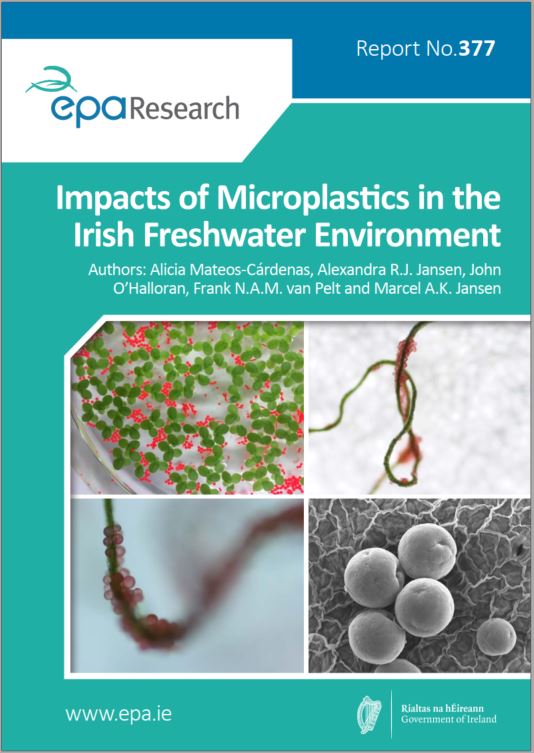
Authors: Alicia Mateos-Cárdenas, Alexandra R.J. Jansen, John O’Halloran, Frank N.A.M. van Pelt and Marcel A.K. Jansen, June 2021
Year: 2021
Plastics are a key part of modern life, due to their desirable characteristics such as light weight and low cost. However, the extensive production of plastics is resulting in plastic pollution. This study recognises the risk posed by rapid formation of micro- and nanoplastics in the freshwater environment and advocates the rapid development of field-monitoring and impact studies to analyse hazards and risks posed by these plastics.
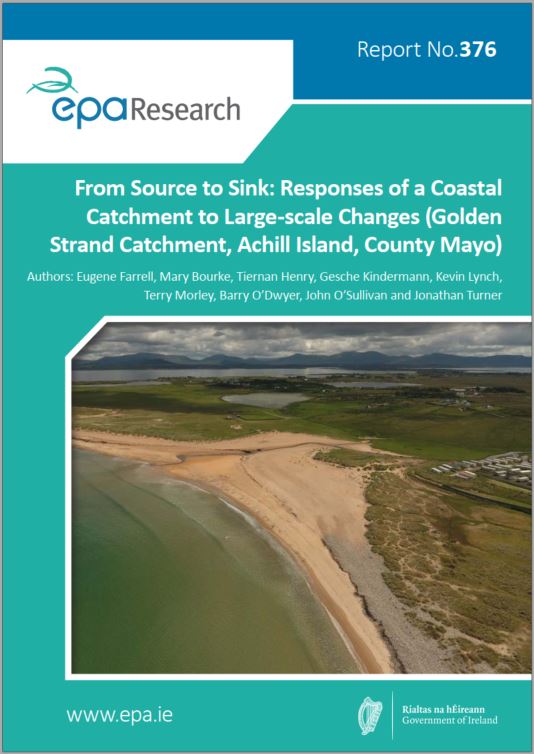
Authors: Eugene Farrell, Mary Bourke, Tiernan Henry, Gesche Kindermann, Kevin Lynch, Terry Morley, Barry O’Dwyer, John O’Sullivan and Jonathan Turner, June 2021
Year: 2021
This research is a series of field experiments that measured patterns in the sediment and water pathways in the Golden Strand catchment, Achill Island, County Mayo. The results show that climate changes (storminess, temperature, precipitation) impacts are site specific and require long-term, multi-disciplinary field monitoring programmes (geomorphology; ecology; hydrology) to capture local specificity and environmental variability.
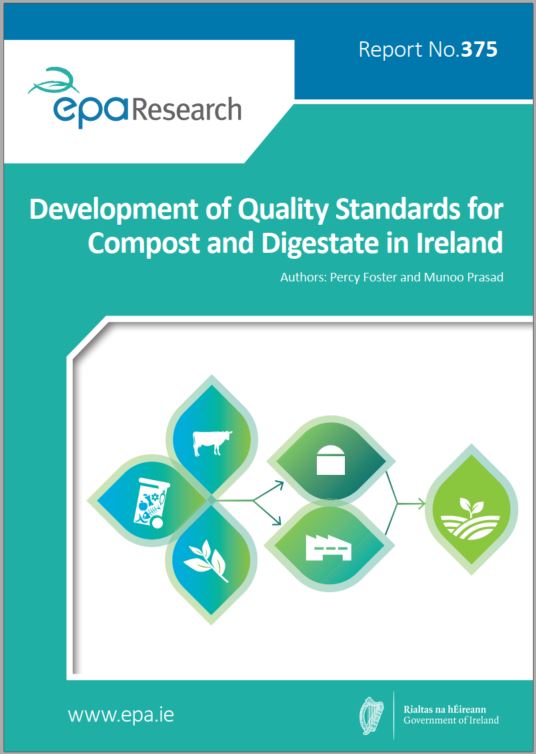
Authors: Percy Foster and Munoo Prasad, May 2021
Year: 2021
In Ireland, there are no national end-of-waste criteria for compost and digestate derived from source-separated materials. This study developed a quality standard for digestate and an updated standard for compost, it also recommends a strategy on how Ireland should implement national end-of-waste criteria for compost and digestate. It also examined best practice in other countries and options for having end-of-waste criteria.
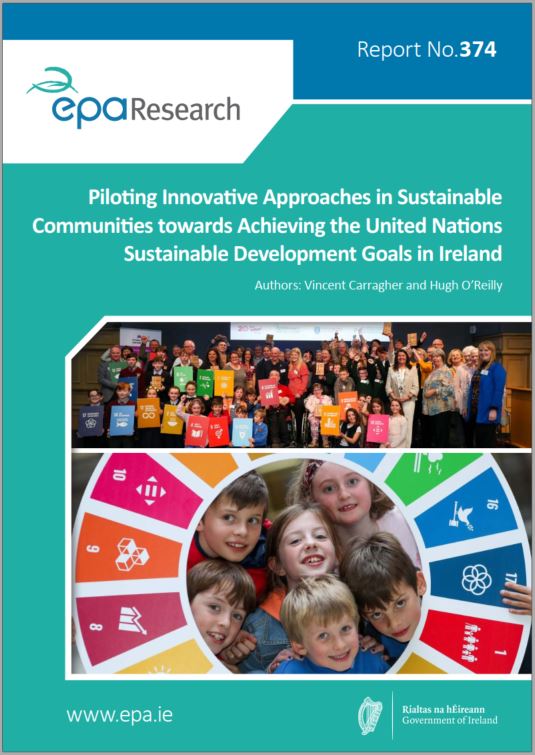
Authors: Vincent Carragher and Hugh O’Reilly, May 2021
Year: 2021
This study set out to catalyse the sustainability transition of communities using the United Nations Sustainable Development Goals (SDGs) as a framework. The research had a branded, public-facing campaign, Spark Change (www.sparkchange.ie), which recruited communities to an SDG challenge, effectively asking and supporting them to progress their sustainability transition and related SDG actions.
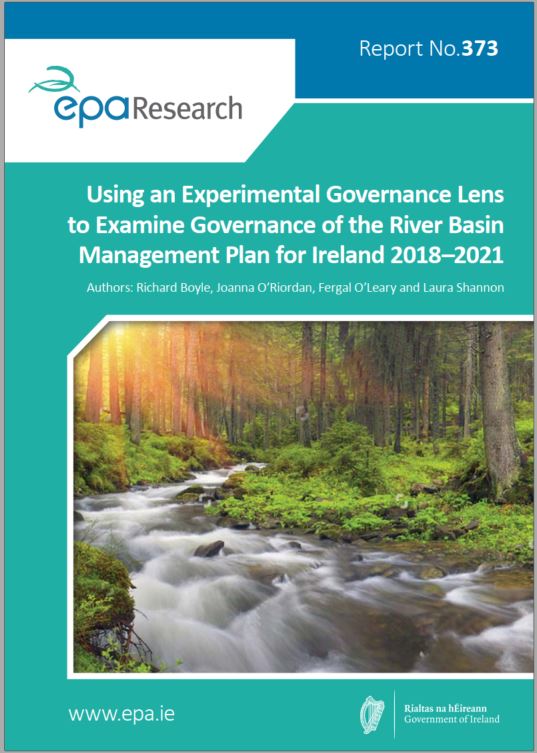
Authors: Richard Boyle, Joanna O’Riordan, Fergal O’Leary and Laura Shannon, May 2021
Year: 2021
This report examines lessons learned from the water governance arrangements put in place for the River Basin Management Plan (RBMP) 2018–2021 for Ireland through the lens of experimental governance. The study finds that the three-tier governance structure is appropriate and should be continued. However, there is still room for improvement in the area of adapting and improving the operation of the existing arrangements.
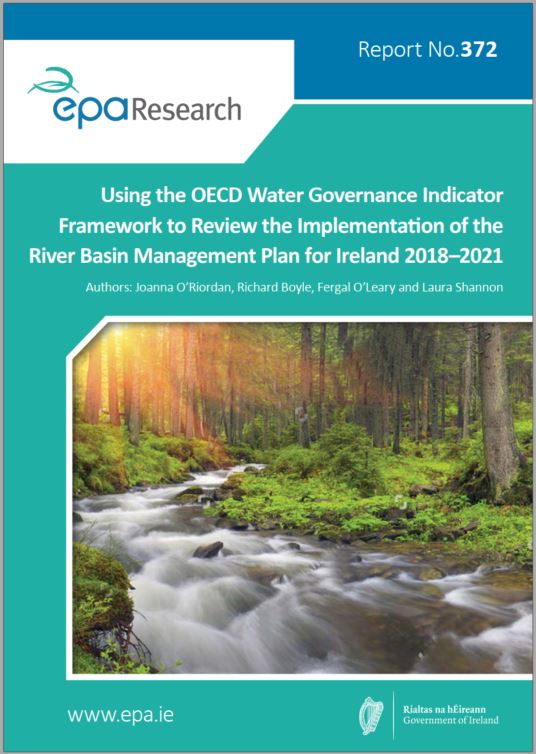
Authors: Joanna O’Riordan, Richard Boyle, Fergal O’Leary and Laura Shannon, May 2021
Year: 2021
This report assesses water governance in Ireland using the Water Governance Indicator Framework, a tool developed by the Organisation for Economic Cooperation and Development (OECD) in 2018 to assist countries in assessing their progress towards the European Union’s Water Framework Directive.
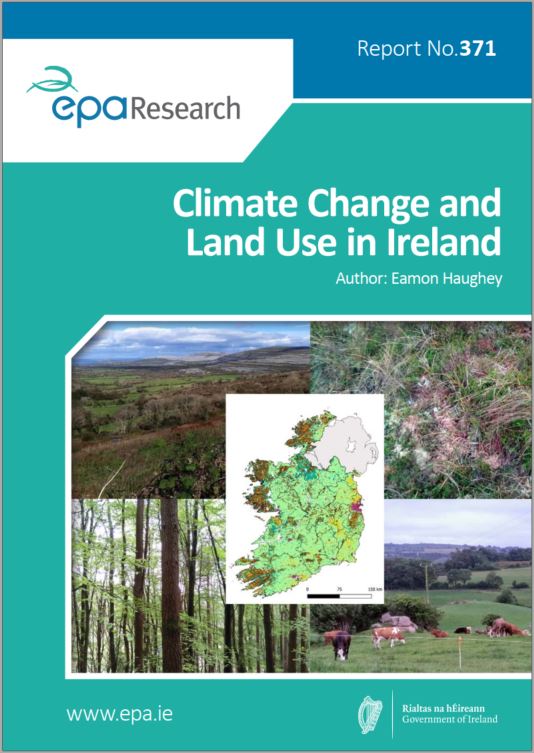
Author: Eamon Haughey, May 2021
Year: 2021
Land supports a range of ecosystem services including biodiversity and economic outputs in the agriculture and forestry sectors. This report identified pressures in the land system by analysing land use and outputs and greenhouse gas emissions associated with the land system. It identifies knowledge gaps in relation to national land use mapping, which currently limit the potential for regional analyses of land–climate interactions.
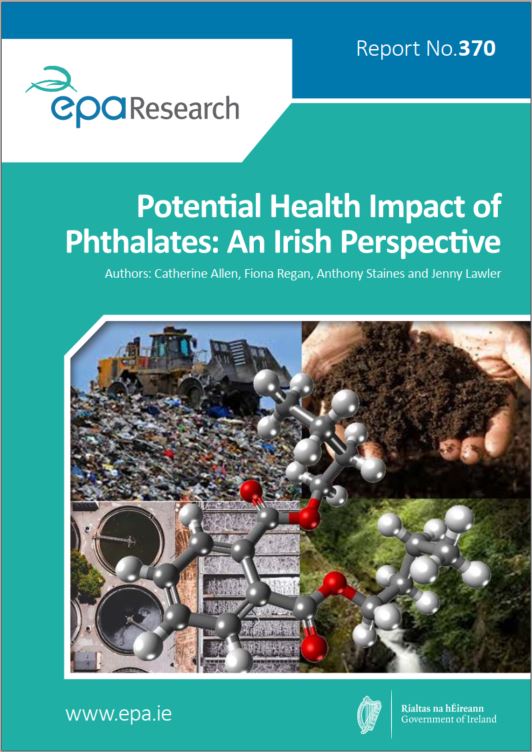
Authors: Catherine Allen, Fiona Regan, Anthony Staines and Jenny Lawler, April 2021
Year: 2021
Phthalates are plasticisers that are ubiquitous in the environment, have the potential to disrupt the endocrine system and are associated with a wide range of adverse health effects. This report identifies that all 11 phthalates studied are currently present in the Irish environment. The levels of human exposure indicate that there is no immediate risk to human health on a population-averaged basis.
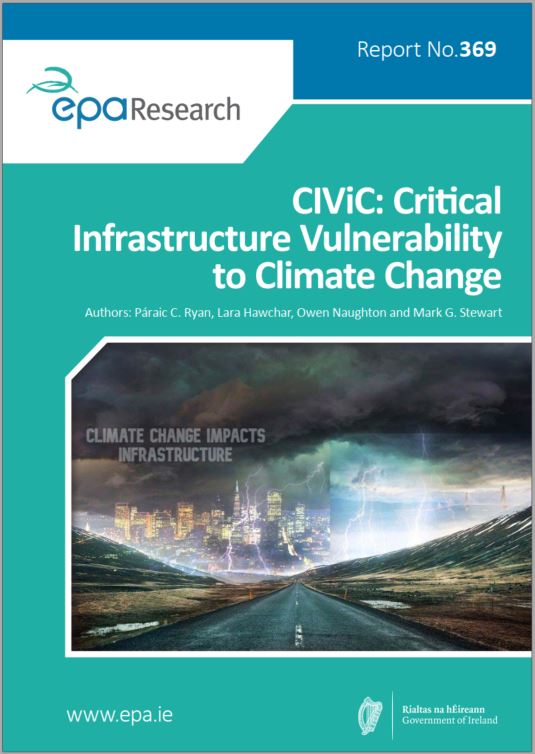
Authors: Páraic C. Ryan, Lara Hawchar, Owen Naughton and Mark G. Stewart, March 2021
Year: 2021
Modern society relies on the effective functioning of critical infrastructure networks to provide public services, enhance quality of life and spur sustainable economic development. Part A of this report presents a framework and analysis aimed at identifying potential risks for the four main critical infrastructure sectors. Part B of the report was applied to part of the energy sector as an illustrative case study.
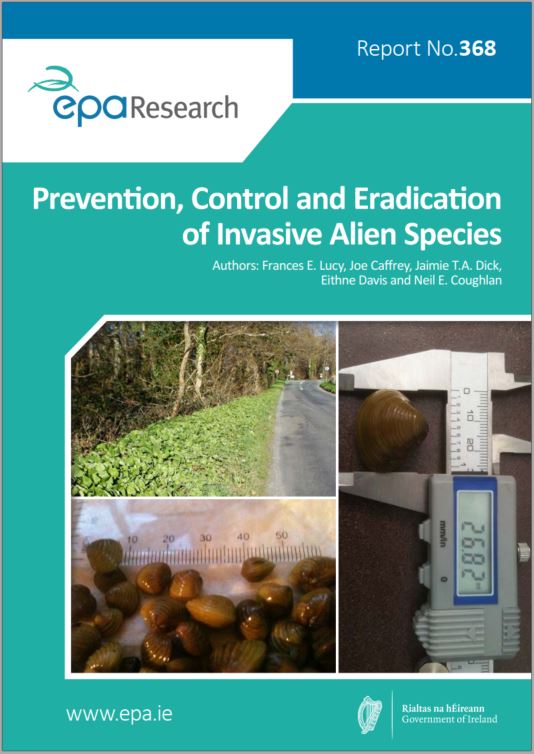
Authors: Frances E. Lucy, Joe Caffrey, Jaimie T.A. Dick, Eithne Davis and Neil E. Coughlan, February 2021
Year: 2021
Invasive alien species (IAS) are animals and plants that become introduced, either accidentally or intentionally to a region where they are not present and have serious negative impacts where they establish. This research informs policy on the prevention, early detection and rapid eradication of IAS, and their management in accordance with the internationally agreed hierarchical approach to combatting IAS.
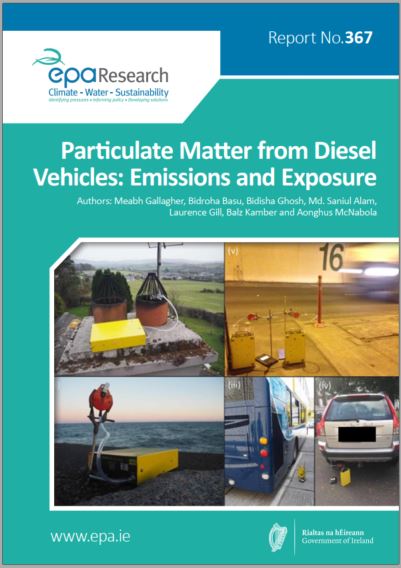
Authors: Meabh Gallagher, Bidroha Basu, Bidisha Ghosh, Md. Saniul Alam, Laurence Gill, BalzKamber and Aonghus McNabola, February 2021
Year: 2021
Research was conducted to assess the contribution of diesel vehicle emissions to the concentrations of PM2.5 in Dublin. The major source identified was solid fuel burning, contributing 46-50% of the total mass recorded. The 2nd largest contributor at a roadside site was diesel vehicle emissions (22%) followed closely by road dust (19%). The 2nd largest source at a suburban site was soil (20%) followed closely by sea spray (14%).
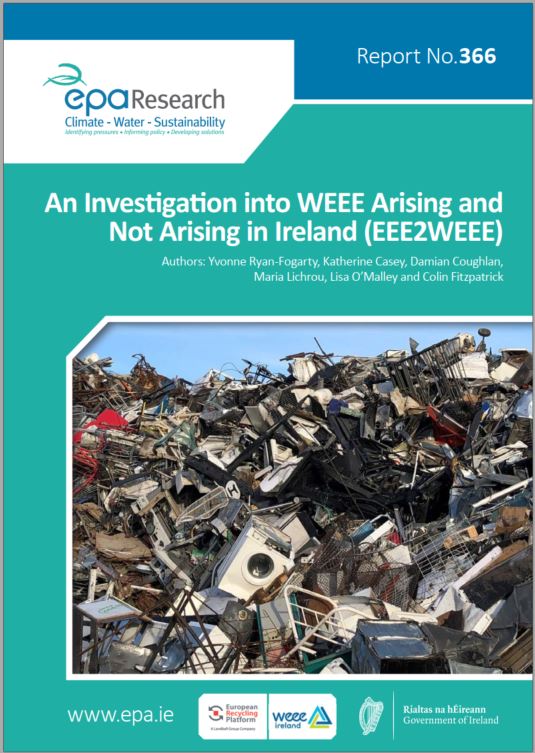
Authors: Yvonne Ryan-Fogarty, Katherine Casey, Damian Coughlan, Maria Lichrou, Lisa O’Malley and Colin Fitzpatrick, February 2021
Year: 2021
Waste electrical and electronic equipment (WEEE) is the fastest growing waste stream in Europe. This research provides insight into consumer and business behaviours towards WEEE, particularly regarding how key decisions are made around WEEE disposal. This research determined a hybrid approach to WEEE target setting should be explored, using data available to Ireland and using aspects of the WEEE Calculation Tool.